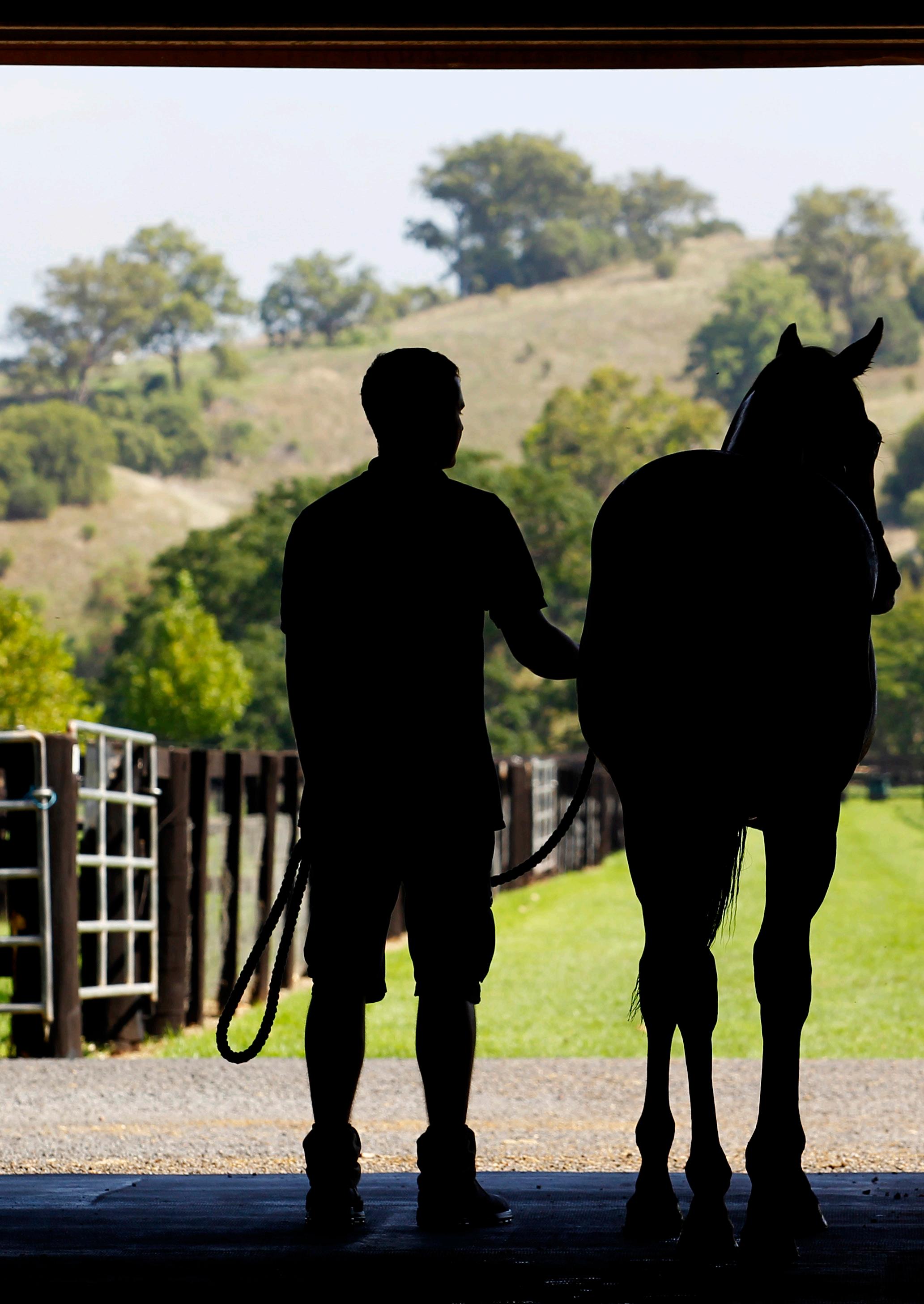

Rewarding Careers

Nestled in the Hunter Valley, surrounded by the Wollemi National Park and the Barrington Tops some 200 stud and broodmare farms have made the Hunter Valley their home.
The Hunter Valley contains the second largest concentration of studs in the world – second only to Kentucky in the USA.
From Jerrys Plains, the gateway to the Upper Hunter, through Denman to the Widden and Bylong Valleys, east to Muswellbrook and Aberdeen, north to the Segenhoe Valley, Scone and Murrurundi – each farm offers a unique and unparalleled work and life experience.
Every farm is a working business. Some are family owned and operated. Others private businesses or part of world-leading and world-renown operations.
There’s no place quite like the Hunter Valley…

Breeders of Champions And Champion of Breeders
The Hunter Valley’s Thoroughbred Breeding Industry is Australia’s premier breeding industry and one of three Centres of Thoroughbred Breeding Excellence in the world - alongside Kentucky in the USA and Newmarket in the UK.
Our assets are our people. They are the backbone of our industry and critical to our industry’s success.
The Hunter Valley’s Thoroughbred Breeding Industry is an integral part of the Upper Hunter community.
With a history spanning nearly 200 years, we are proud to be Australia’s Thoroughbred Breeding Capital, a world leader in thoroughbred breeding and a NSW State Government recognised Equine Critical Industry Cluster of state, national and international importance.
• We partner with our members, international, national and local organisations, including local schools and Hunter TAFE, to offer rewarding training and career opportunities to people with an interested in the horse industry.
• The Hunter Thoroughbred Breeders Association sponsors scholarships to the prestigious Irish National Stud Course, supports local schools and partners with TAFE to provide thoroughbred breeding training courses and traineeships, and provides on-the-job training, with the support of its stud farm members.
• Our assets are our people. They are the backbone of our industry and critical to our industry’s success. We invest in the training and development of our employees and industry leaders of the future.
• If you are interested in a rewarding career in Australia’s premier Thoroughbred Breeding Industry in the Hunter Valley please contact us so that we can help you start your thoroughbred breeding career.
Dr Cameron Collins HTBA PRESIDENT

Careers with horses
Stud Hand
Stallion Handlers & Grooms
Yearling Manager
Foaling Manager
Night-watch Foaling Attendant
Horse Educator
Stud Manager
Operations Manager
Transport
Full Time Stud Trainee
School Based Trainee
Racing and Training

Stud Hand and Stud Grooms
Fundamental to the day to day running and operation of any stud farm, it is a role that allows you to develop a comprehensive understanding of the practical aspects of running any stud farm. Stud grooms are the backbone of the farm, ensuring the day to day care of the horses and farm is of the highest standards. Developing an understanding of the day to day workings of a stud farm will give you the greatest grounding you could receive for a career in the Thoroughbred Breeding Industry and will provide you with much of the knowledge that you will need to one day manage a large commercial thoroughbred farm or your own business. The foundations of a good racehorse are established during its youth and experiencing life on a stud farm can help you to understand and experience the fundamental aspects of breeding a quality horse. It can also lead to other roles within the industry and is a great way to gauge where your career may head in the future.
Daily tasks may include:
• Grooming and feeding horses.
• Moving horses around the farm.
• Assisting Managers and supervisors.
• Cleaning stables and yards.
• Feeding and grooming of horses.
• Cleaning of stables and yards.
• General stable maintenance such as cleaning water troughs and small repairs.
• Treatment of minor injuries and wounds on horses.
• Ordering of feed, veterinary and saddlery supplies.
• Ensuring quarantine procedures are adhered to.
• With experience, grooms may also be given the opportunity to assist in foaling mares.
• Handling of young horses and preparation of these horses for sales.
• This includes teaching horses to lead, washing, grooming and putting horses on the walking machine.
• Presentation of weanlings, yearlings and mares to prospective buyers at horse sales.
• Preparation of mares for entry to the serving barn during the breeding season.
• Some grooms that are employed on larger farms with international operations or grooms with adequate knowledge and expertise from smaller operations may also have the opportunity to travel to these farms.
Stallion Handlers & Grooms
The role of a Stallion handler is essentially a progression from that of a stud groom. It requires a high standard of horsemanship which is generally developed during time as a stud groom. Being a stallion handler sees involvement in the management of stallions and the mare covering process. There is the significant responsibility of looking after these highly valued thoroughbreds and seeing the safe practices of serving (or covering) broodmares during the breeding season, adhering to Quarantine practices and safety management is a key requirement for this role. Stallion handlers employed by international studs may also be required to travel to the northern hemisphere for the breeding season which follows on directly after the Australian breeding season.
Daily tasks may include:
• Control of stallions during the mating of mares.
• Control of mares during the mating process.
• Preparation and presentation of stallions to clients at stud stallion parades.
• Putting stallions on exercise walkers and/or hand walking.
• Ensuring quarantine procedures are adhered to.
• International Travel
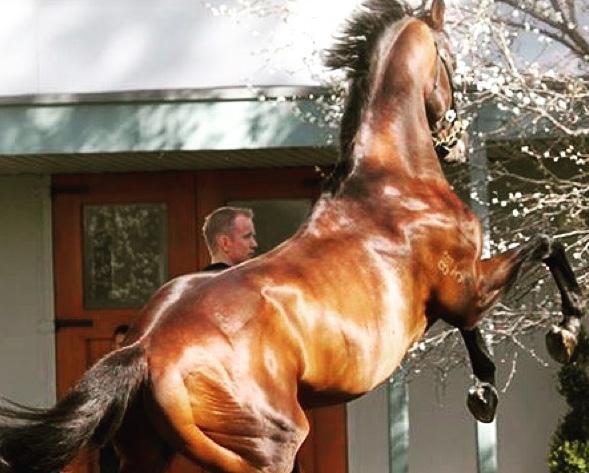
Managing the preparation of yearlings for major thoroughbred sales comes with a high level of responsibilities, including the management of staff throughout the yearling preparation process, supervising all aspects of sales drafts (group of horses) with presentation to the highest standard, and attending sales not only in Australia but occasionally overseas. Most Yearling managers start off their careers as Stud Grooms and will work to a career path with Yearlings by ascertaining the skills necessary showing leadership, horsemanship, attention to detail and safety for horses and people.
Daily tasks may include:
• Grooming and feeding horses.
• Exercising horses in the walker or round yards.
• Managing nutrition and exercise regimes for the horses in the sales drafts.
• Attending sales.
• Parading horses for clients on the farm or at the sales.
• Liaising with clients at sales.
• Managing staff and ensuring the workload is completed to the highest standard and safety.
• Travelling interstate and overseas.


Foaling Manager
Cares for the pregnant mares during their late pregnancy through to post foaling. They will also work closely with the Veterinarian caring and treating mares that may have difficult pregnancies. The Foaling Manager looks after the foals during and after they’re born until they’re ready to join the other mares and foals out in the paddock. This role has many similarities to a midwife at a hospital.
Daily tasks may include:
• Foaling Mares
• Veterinary treatments in the hospital barn.
• Monitoring high risk pregnancies.
• Guiding and teaching staff.
• Reporting to management on each mare and foal in their care.

Night-Watch Foaling Attendant
This role is similar to that of a midwife in a hospital, a Night-watch foaling attendant is key for any commercial broodmare farm. As a majority of foals are born in the wee hours of the night and it’s crucial to have the right person on the job. Night-Watch Attendants typically start out as Stud Grooms or Vet nurses and would have either extensive experience and/or study to ensure the best outcome of every foaling. Veterinarians are on call for difficult cases or emergency situations.
Daily tasks may include:
• Checking the mares regularly overnight.
• Foaling down mares.
• Administering treatments for mares and foals.
• Observations of post foaling mares and their newborns.
• Ensuring sanitary conditions in and around the foaling unit, cleaning stables and checking water.

Horse Educator
Educators may start out with horses as a stable hand or stud groom, while some are born and raised in a family horse business. Others have come from various backgrounds all of which are passionate about hores. Many horses start out their lives with an educator from the weaning process, this is a crucial part of a horses life and requires skill, understanding the horses nature and patience among all. It is about knowing a horse’s abilities and strengths and preparing them for their lives either on the race track, a performance horse or as a broodmare. To become an educator takes a lot of experience working with horses and working in the studs and stables. Working their way up the ladder to gain experience and knowledge to have their own stables, while others are employed by larger stables and can find themselves travelling the world with horses. This a highly competitive area, and not everyone can make it. Apart from having experience with horses, trainers must also have good communication skills, as they need to manage staff and communicate with owners and potential owners.
A Stud manager has significant responsibilities in managing horse breeding activities. Leading and overseeing the work of employees in the company. Ensuring the efficiency of business operations as well as setting strategic goals for the future. Well-versed in all matters business and a competent leader able to provide guidance that enhances performance in a manner which incorporates the company’s vision and culture. Ensuring the profitability of the company’s activities to drive sustainable development and long-term success.
Daily tasks may include:
• Managing bloodstock, physical and natural resources.
• Business administration.
• Staff management and training.
• Supporting the marketing of bloodstock.
• Develop goals and objectives that lead to growth and prosperity.
• Design and implement business plans and strategies to promote the attainment of goals.
• Ensure that company has the adequate and suitable resources to complete its activities (e.g. people, material, equipment etc.)
• Organise and coordinate operations in ways that ensure maximum productivity.
• Supervise the work of employees and provide feedback and counsel to improve efficiency and effectiveness.
• Maintain relationships with partners/vendors/ suppliers.
• Gather, analyse and interpret external and internal data and write reports.
• Assess overall company performance against objectives.
• Represent the company at events, conferences etc.
• Ensure adherence to legal rules and guidelines.
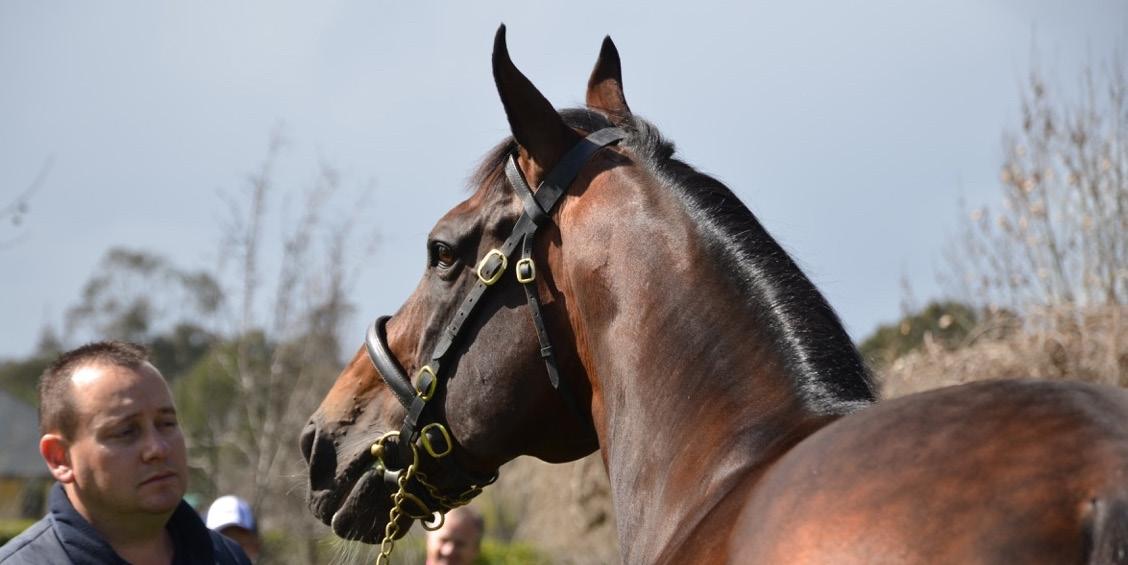
An Operations Manager plans, directs and coordinates an organisation’s operations. They are responsible for improving performance, productivity, efficiency, profitability, managing a team of managers, training managers through the implementation of effective policies.
Daily tasks may include:
• Ensuring all systems are operating in a correct, cost effective and timely manner in alignment with a high standard of safety and performance quality.
• Define or improve operational procedures and best practices that guarantee organisational well-being.
• Purchasing, planning to ensure efficiency.
• Contribute towards the achievement of company’s strategic and operational objectives.
• Examine financial data/statements and utilise them to improve profitability.
• Perform quality controls and monitor outcomes.
• Recruit, train, supervise and appraise human resources.
• Cater to clients’ or personnel’s concerns.
• Attend sales and assist with the organisation of events.

Transport
The role of a horse transporter (truck and float driver) isn’t just knowing how to drive a heavy vehicle, the role requires horsemanship skills and attention to detail while handling horses safely and managing best practice at all times. A driver may be required to take mares and foals to stallion farms during the breeding season, yearlings to sales, racehorses to the track, or horses to the vet clinic. Many of the horses the drivers handle may never have seen a truck before and a caring and safe approach can be the difference in the horse’s career. Drivers may also be stud grooms, stallion handlers or worked in educating horses. Some trips can take them on long hauls, various racetracks and see the sights of some of Australia’s countryside and studs.
Full Time Stud Trainee
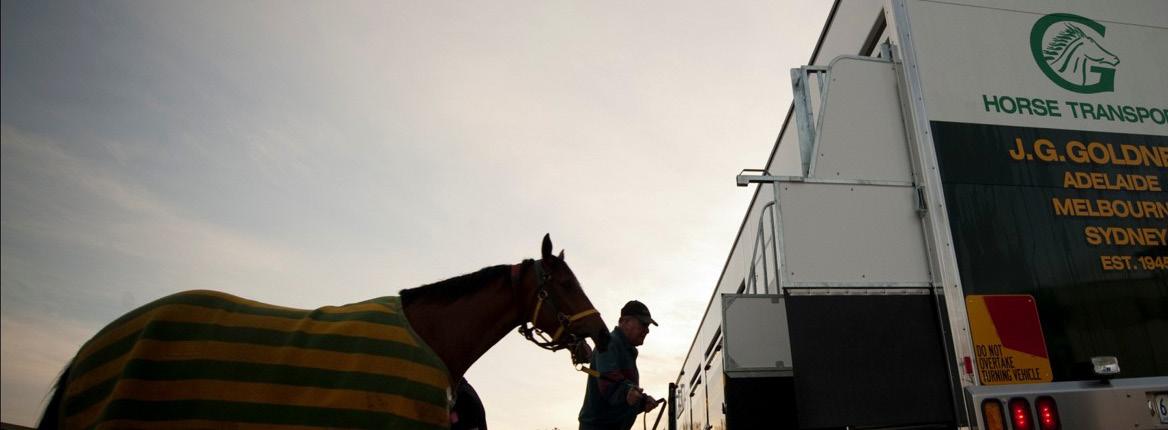
Traineeships are available not just to school leavers, but any employee can start off their career as a trainee, learning valuable on the job skills as they study.
There are many traineeships that can be carried out with on the job training in the Hunter Thoroughbred Breeding Industry such as:
Agriculture, Animal Care and Management, Equine Studies, Horse Breeding, Horse Management, Racing & Training services, Farriery, Night-watch foaling, Vet Nursing, Equine Dentistry, Horticulture, Administration, Accounting, Marketing, Business Management, IT, Business Services and even Automotive.
School based Stud Trainee

Traineeship courses in Equine and Primary Industries offer many young students an introduction into the industry with the hands-on experience to gaining a career in the Thoroughbred industry. Not only do you gain practical hands on experience but will cover the fundamentals learning about proper handling of horses, care and management on a breeding farm. Students will learn about feeding and nutrition, grooming, hoof and teeth care, horse transport, horse anatomy, horse confirmation, horse health, stud breeding practice, personal health, safe working practices and communication skills.
With the many primary industry electives, you can make the right choices in taking that next step into a fulfilling and rewarding career in with horses.
There are a variety of courses that suit most new starters and those already employed in an equine industry job, including school based traineeships as part of your HSC (Year 11&12) that contribute units towards your ATAR.
Racing and Training

The Australian thoroughbred racing and breeding industry offers a range of careers, employment opportunities and horse jobs. Below are descriptions of some of the various jobs that the racing industry has to offer, many of which must be licensed by the respective Principal Racing Associations in each State.
Track Rider helps exercise race horses by walking, trotting and galloping them so they are fit enough to ride in a race. Track Riders are like Jockeys, but they don’t ride in races and do not have to manage their weight in the same way that Jockeys do. Track Riders generally start work around 4.00am avoiding the heat of the day, so they have the opportunity to hold another job or study during the day.
Stable Hand duties include grooming, feeding, walking and attending the races with horses ensuring that they are looked after. Some Stable hands also ride track work. Stables generally open around 4.00am for the morning shift, and re open around 3pm for the afternoon shift, in order to avoid the heat of the day.
Trainer conditions horses to bring them to peak fitness using knowledge of each horse’s abilities and strengths in training them for races. Becoming a trainer takes a lot of experience working with horses and working in racing stables. Most trainers start out originally working as stable hands or track riders and working their way up the ladder in order to gain experience. Many trainers have their own stables, and others are employed by larger stables. It is a highly competitive area, and not everyone can make it. Apart from having experience with horses, trainers must also have good communication skills, as they need to manage staff and also communicate with owners and potential owners.
Jockey can be a tough but rewarding full time career in a highly competitive sporting industry. Jockeys begin their career being employed by a racehorse trainer as an apprentice jockey, before going on to be self-employed. Jockeys will be required to work in both country and metropolitan areas and ride at race meets in all areas to gain experience. There are opportunities for Jockeys to also ride in other countries such as Hong Kong, France, Singapore and the United Kingdom. Apprentices must be at least 15 years of age and with a weight below 50kgs.
Stewards are responsible for the conducting of race meetings ensuring that the Rules of Racing are adhered to. Being a Steward involves a wide number of duties in order to properly control and regulate racing. Stewards are employed by the Principle Racing Authority of each State and all Stewards start
as a Cadet Steward.
Handicappers are responsible for determining what weight horses should carry in a race. Handicappers are employed through the respective Principle Racing Authority and must have a good understanding of racing and be able to assess a horses racing form.
Barrier Attendants are responsible for the loading of horses into the barriers on race days. Barrier Attendants must have experience in handling horses and are employed by Race Clubs. As it is a job that only involves work on race days, most barrier attendants hold other jobs, some working at racing stables.
Bookmakers Clerk is responsible for the processing of bets that are placed through a Bookmaker. Clerks are employed by Bookmakers and must be licensed by the respective Principle Racing Authority. A Bookies Clerk is responsible for handling cash and calling the bet, and/or entering the bet into the computer and printing out the ticket.
Tote operators are responsible for the processing of bets that are placed through the Tote. Tote Operators are employed by the Tote and must be able to handle cash and enter bets into the computer.
Race Caller is responsible for the calling of races and trials. Race Callers are employed by relevant radio and television stations.
Syndicator is responsible for the purchasing of horses and then finding owners to race the horse. A syndicator will also help manage the horse and finances through its career.
Race Course Manager is responsible for the management of race tracks, to ensure that on race day the track is provides a safe and fair racing surface. Racecourse Managers are employed by Race Clubs and generally have experience of qualifications in Horticulture.
Horse trainer/starter are responsible for educating young horses and preparing them so that they can be ridden and commence training for races.
Pre-Trainer is responsible for the conditioning of horses prior to them going into racing stables. Horses may go to a pretrainer straight after spelling, so that the pre-trainer can do some conditioning work with the horse, and send it to the racing stable in a more forward position.
Stable Foreman similar to an assistant trainer or senior stable hand.

Equine Specialists
Equine Veterinarian
Vet Nurse
Equine Laboratory Technician (Pathology)
Veterinary Assistant
Equine Nutritionist
Equine Dentist
Equine Podiatrist
Equine Physiotherapist
Equine Naturopath
Farrier
Equine Veterinarians are licensed health professionals who provide vaccinations, treat injuries, diagnose, prescribe medications, treat diseases and perform surgery on horses. Veterinarians are often consulted on topics such as diet, stabling, improving performance, breeding and often working in conjunction with a farrier to correct angular limb deformities, solve lameness issues, and ensure that the foot is properly balanced.
The thoroughbred industry duties include performing pre-purchase exams, monitoring the reproductive health of breeding stallions and broodmares, assisting with foalings, and taking x-rays or ultrasounds.
It is common for equine veterinarians to work a five to six-day week with additional “on call” emergency hours as needed. Work may occur outdoors in varying temperatures and weather conditions.
A veterinary science degree takes around five or six years of study, depending on the university. Australia has several universities offering undergraduate veterinary science courses. It’s a good idea to contact the university you’d like to attend to get more information on course
requirements and the marks you will need. For mature students who are thinking of changing careers, bear in mind that there may be limited places available so contact the university to find out about any entrance opportunities.
A veterinary science course can be demanding, but if you’re highly motivated, have an interest in science and care about the health and welfare of animals, it may be the course for you.
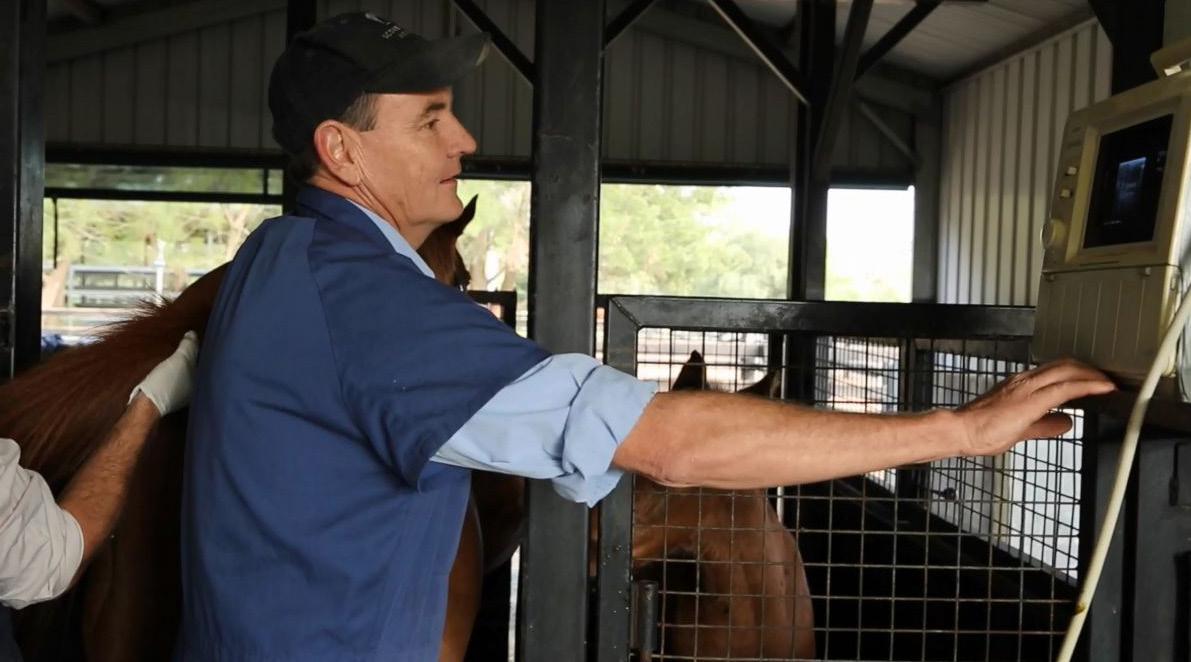
An equine nurse plays a role in all aspects of equine veterinary care, including medicine, surgery, intensive care, breeding and anaesthesia. Equine nurses are often involved in clinical pathological and radiological procedures. Veterinary nurses are employed on a stud farm to assist veterinarians in rehabilitating horses with injuries or illness. They are also very often largely involved in the delivery of foals and hence many vet nurses are employed as ‘Night Watch’ workers during the foaling season. Quite often, veterinary nurses will be employed as stud grooms but will hold additional responsibilities. This role like that of any Equine Specialist can be physically and emotionally challenging, but yet rewarding. There are several study courses you can take to get your Equine Nursing career started. Daily tasks may include:
• Foaling down of mares.
• Assist with Veterinary procedures and surgeries.
• Cleaning and maintaining of the equine facility, and implementing quality assurance methods and OHS procedures.
• Maintain and monitor horse health and welfare records.
• Participate in workplace communications and administration.
• Feed and water animals.
• Assist in health care of animals, including administering medications prescribed by Veterinarians.
• Manage Quarantine practices and procedures.
• Comply with infection control policies and procedures in animal work.
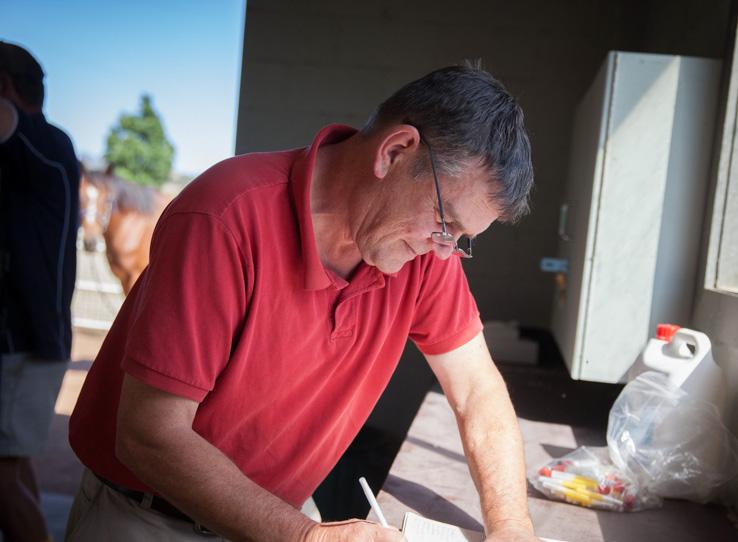
Equine Laboratory Technician
The veterinary laboratory analyses specimens (blood, fluids and tissues) and provides information that the veterinarian can use to diagnose, treat and monitor a horse’s health or disease status. Veterinary pathology covers a wide range of areas including haematology (looking at blood cells), biochemistry (measuring levels of enzymes, proteins and electrolytes), microbiology (bacteria, fungi, viruses, parasites) and histopathology (microscopic examination of tissues). Molecular technologies such as PCR are also now being widely utilised in veterinary laboratories as a diagnostic tool.
There are a number of pathways into the laboratory. Veterinary nurses may perform pathology tests as part of their role or samples may be sent to a more specialised veterinary laboratory. Staff in these labs have usually undertaken study through vocational education providers such as TAFE or completed university degrees in laboratory science or equine studies. A veterinary pathologist is a veterinarian who has completed further studies in pathology. Research opportunities are also available.
Equine Veterinary Assistant
Another important member of the equine world, often vet assistants are working their way through medical school and will someday become a veterinarian themselves. They handle the more basic tasks and often accompany the vet on farm visits.
Daily tasks may include:
• Assisting with Veterinary procedures
• Ensuring sanitary conditions are adhered to in all areas, cleaning barn areas and monitoring stock supplies.
• Checking all paperwork for admissions and treatments are in order, filing and confirming lab results have been received for the Vets.

An equine nutritionist specializes in the health, diet and feeding behaviours of horses. This professional may be either an animal scientist or a veterinarian who has special training in large animal or equine physiology, disease and nutrition.
Many individuals in this field have Bachelor’s degrees in equine studies or animal science as well as advanced degrees. Veterinarians must hold doctoral degrees in veterinary medicine and be licensed. Most animal scientists have earned doctoral degrees, and those specialising in equine nutrition focus their studies and research in that area. In addition to large animal veterinary practice, equine nutritionists can work at universities and animal feed manufacturing companies, among other options.

Professional specialist dental care is required as part of regular horse maintenance and nutrition management. Oral and dental health can have a significant impact on a horse’s wellbeing, performance and lifespan. This care requires high level of skills and knowledge in a variety of dental aspects. To become an Equine Dentist, you will need to complete a Certificate in Equine Dentistry. Many Veterinarians will specialise in Equine Dentistry.
Veterinarians with a particular interest and training in dentistry perform regular assessments and routine procedures on patients’ teeth. They also have the skills and equipment required for the advanced procedures involved in treating oral and dental diseases and injuries.

An Equine Podiatrist may start out as a Farrier or Veterinarian and combine the knowledge of these two parallel skills, concentrating on lameness issues and developing treatment management plans for foot problems.
Research interests include the biomechanics of therapeutic horse shoes, hoof and limb conformation of thoroughbred foals to yearlings and laminitis in broodmares.
Working closely with a team of Veterinarians, Farriers and specialist Equine Surgeons this role like many other specialist roles in the Equine Veterinary field takes University studies, passion and dedication to the specific fields of practice.
Footnote: Please visit www.sconeequinehospital.com.au for information on specialists in the veterinary fields

Equine Physiotherapist
The principles of equine physiotherapy are no different to those in the human world - addressing movement dysfunction, muscle imbalances, gait abnormalities, restricted range of motion and adaptive changes in soft tissues and joints. An equine physiotherapist must first be a qualified human physiotherapist, who has then undertaken further post-graduate study in the treatment of animals.
In NSW, it is a requirement that all animal physiotherapists work under vet referral. Physiotherapists work closely not only with the vet, but also your Farrier, Dentist and other healthcare professionals, ensuring a full team approach in addressing a horse’s injury or dysfunction.

Equine Naturopath
The primary role of this job is to facilitate optimal health, wellbeing and performance in the equine individual, using a holistic assessment and treatment approach. After completing a thorough assessment of the horse, a treatment plan is developed which involves dietary and management advice; and in many cases the use of western herbal medicine, nutraceutical supplementation and other therapeutic modalities such as homeopathy.
As an equine naturopath, you would treat and manage a broad spectrum of current health conditions, in addition to employing preventative health measures. Working in conjunction with veterinarians and other equine health care practitioners where appropriate.
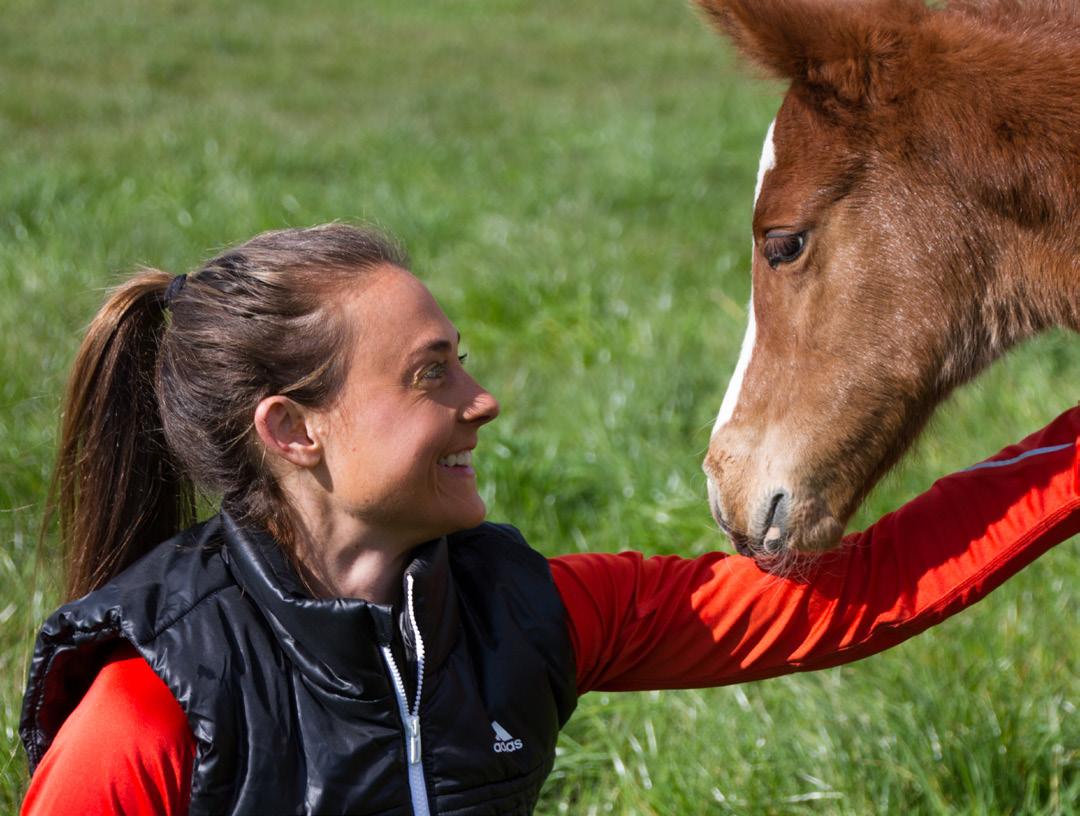
A Farrier is responsible for the shoeing of horses and work across racing stables, stud farms and large equestrian establishments. Most trainers and stud farms will only use a farrier that is qualified. Farriers are mainly self-employed; however, some race clubs, larger stables and stud farms also employ farriers.
Specialised in their field of the hoof and foot a farrier may work in correcting the confirmation of foals and horses and will often consult or work alongside Equine Specialists such as Veterinarians, Podiatrists and Physiotherapists ensuring the best practice is followed to in maintain the soundness of the horse.

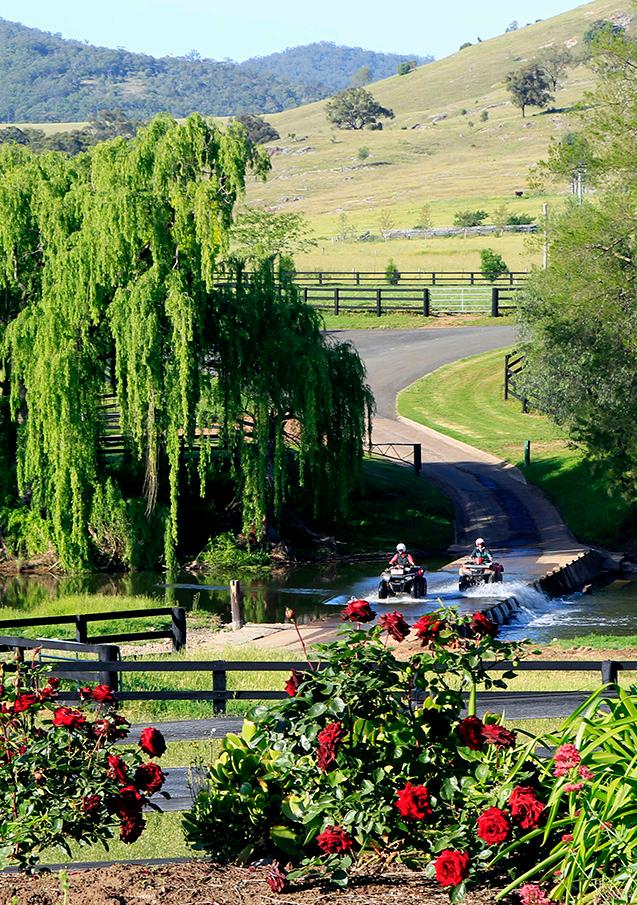
Agricultural & Farming
Farmer
Gardener (Horticulture & Landscape)
Livestock Manager (Cattle)
Agronomist (Pasture Management)
Maintenance (Workshop)
Farmer
Farmers play an integral role in the running of any thoroughbred farm. Amongst other factors, water quality, pasture maintenance and fencing matter. The success of a thoroughbred farm staff is to ensure the sustainability and health of the land.
Daily tasks may include:
• Pasture maintenance including sewing seed, slashing and weed control.
• Irrigation management.
• Maintenance of fencing.
• Gardening and tree planting.
• Soil and water testing.
• Maintenance of roads and laneways.
• Building maintenance.
• Cattle production, care and sale.
• Ordering and maintenance of farm equipment.

Gardner (Horticulture & Landscape)
Business branding is parmount to succes an damjor part of every stud’s brand is presentation. When it comes to gardens you can’t go past the extent of meticulous attention to detail and care of the gardens on the farms, some of which have won awards. There are many ways to enjoy an outdoors job on a horse stud, and it doesn’t always require you to work directly with the horses.
Daily tasks may include:
• Plan and executes small scale or large landscaping operations.
• Maintain the grounds and landscape of the farm and some of the private residences.
• Participates in preparing and grading terrain, applying fertilizers, seeding and sodding lawns.
• Transplanting shrubs and plants.
• Operating manual and power-operated equipment.
• Plants new and repairs established lawns, using seed mixtures and fertilizers recommended for soil type and lawn location.
• Locates and plants shrubs, trees, and flowers selected by property owner or those recommended for particular landscape effect.
• Mows and trims lawns, using hand mower or power mower.
• Trims shrubs and cultivates gardens.
• Cleans grounds, using rakes, brooms, and hose.
• Sprays trees and shrubs, and applies supplemental liquid and dry nutrients to lawn and trees.
• Dig trenches, install drain tiles and drip lines.
• May make repairs to concrete and asphalt walks and driveways.

Livestock Manager (Cattle)
A lot of thoroughbred studs will have a range of livestock. The role of a livestock manager is to care and raise livestock for the production of meat and other animal products. They are responsible for ensuring good animal health is maintained through provision of adequate quality and quantity of pasture and other feed.
Daily tasks may include:
• Organise and conduct general farm activities.
• Livestock control.
• Pest management.
• Breeding controls.
• Calving.
• Pasture management and rotation.
• Preparation for sales and occasionally showing.

Agronomist (Pasture Management)
Agronomists are responsible for decisions regarding crop husbandry and crop rotation.
Daily tasks may include:
• Provide the latest technology for utilisation in crop production.
• Responsibility for overall agronomic decisions affecting production.
• Fostering close relations with regional technical advisors from supply and distribution companies.
• Developing and implementing long term agronomic plans and practices to support organisation plans and budgets.
• Arranging and co-ordinating production activities in conjunction with management.
• Keeping informed regarding technical developments via networking, personal development and training.

Maintenance (Workshop)
Many larger farms will have a workshop for maintenance and mechanical repairs and there are a number of traineeships that can be offered on farms in this field. As you can imagine with the upkeep of infrastructure and equipment that is working all year round, larger farms require facilitating this sector of the industry in house.
Daily tasks may include:
• Preventative maintenance.
• Mechanical services.
• Fencing.
• Building maintenance.
• Welding and fabrication.
• Maintenance scheduling.
• Minor repairs.


Business & Administrative Roles
Stud Secretary
Nominations Sales and Bloodstock Analysts
Marketing
Hospitality & Events Coordinator
Communications & Client Relations
Receptionist
Human Resources
Insurance Manager
Work Health & Safety Officer
Executive Assistant
Management Accountant
IT Manager
Media
Stud Secretary
The role of a Stud Secretary is to ensure the day to day running of the stud office which is the central point of contact for clients wishing to book their mares into stallions or the monitoring of veterinary schedules relating to the breeding of mares. Stud Secretaries/Administrators will often also control the accounts and communications dependent on the size of the farm.
Daily tasks may include:
• General administrative duties such as speaking with clients, office admin including production of reports.
• Daily administration of the farm record keeping system. This usually involves maintenance of computer programs or systems developed to record the veterinary notes regarding cycle of mares, stages of yearling and weanling preparation as well as foaling information.
• You will also be required to produce reports to assist the stud manager in keeping track of the many horses on the farm.
• Booking of client mares for service by a stallion.
• Organisation of horse transport.
• Some farms may also require their Stud Admin role to administer the accounts and financial records of the farm.

Nomination Sales and Bloodstock Analysts
A farm which stands stallions will usually have a ‘Nominations’ team. It is the role of the nominations team to work hand in hand with the marketing team to attract mare owners to their stallions. The nominations team are experts in the pedigrees of thoroughbreds and work to achieve the best mating between a mare and stallion in order to produce offspring that will fetch high prices for their owners at a sale and/or go on to make outstanding racehorses. Most nominations employees have worked their way to this rewarding career path and are passionate about the horses and the Thoroughbred industry.
Daily tasks may include:
• Studying and analysis of pedigrees.
• Communication with clients (mare owners) and sales of stallion nominations (or mare bookings).
• Inspection of foals, weanlings and yearlings which are progeny of the studs stallions.
• This involves travel to broodmare farms and other studs not only around the Hunter Valley but to farms in other states of Australia as well as New Zealand.
• Attending of all major sales in Australia and New Zealand as well as other sales throughout the world.
• Raceday attendances.

Marketing
As with any marketing role, it is the role of a thoroughbred farm marketing employee to promote the benefits of becoming a client of that farm. This will include the promotion of stallions, agistment and horses for sale.
Daily tasks may include:
• Production of promotional material such as flyers, brochures and merchandise.
• Maintenance of the website and other communication streams such as social media.
• Media liaison and Client liaison.
• Event management.
• Raceday attendance and hosting of functions at the racecourse.
Hospitality & Events Coordinator

Hospitality and event coordinators must be well-organized and competent in vendor management. Communication skills and attention to detail will set apart the best among the candidates, a shot of enthusiasm and passion for the job - that’s the ideal candidate.
The goal is to organize unforgettable events that will ensure the entertainment of clients and facilitate the completion of business objectives.
Daily tasks may include;
• Understand requirements for each event.
• Plan event with attention to financial and time constraints.
• Book venues and schedule speakers.
• Co-ordinate suppliers (catering, decorators, entertainment.) and choose the best combination of quality and cost.
• Manage all event operations (preparing venue, invitations etc.).
Communications & Client Relations
The Communications Manager’s role is a career with a great variety of daily tasks which can include social media management, assisting with news stories and press releases, newsletters, marketing, client communication & support, stable visit co-ordination, assisting with website input and office support. Thoroughbred knowledge gained as a stud groom in horse breeding or in the racing industry, whilst gaining your skills with University or College qualification along with being able to effectively work as an individual and within a team is essential for this role.
• Do final checks at the day of the event (e.g. tables, technology) to ensure everything meets standards.
• Oversee event happenings and act quickly to resolve problems.
• Evaluate event’s success and submit reports.
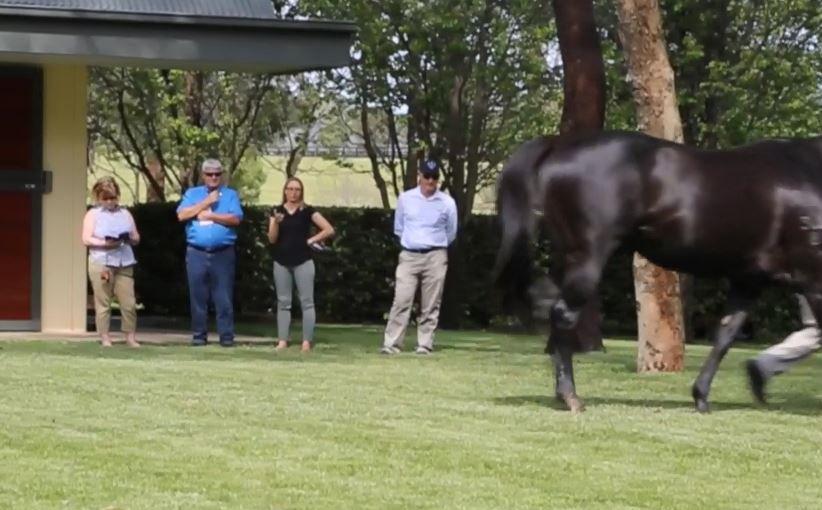
Receptionist
A receptionist is the first point of contact for the company and provides administrative support across the organisation. They must handle the flow of people through the business and ensure that all receptionist responsibilities are completed accurately and delivered with high quality and in a timely manner.
Daily tasks may include:
• Welcome visitors by greeting, directing and announcing them appropriately.
• Manage and forward any incoming phone calls while providing basic information when needed.
• Receive and sort daily mail/deliveries/couriers.
• Maintain security by following procedures and controlling access (monitor logbook, issue visitor badges).
• Update appointment calendars and schedule meetings/appointments.
• Perform other clerical receptionist duties such as filing, photocopying, collating and faxing.
• Resourceful and proactive dealing with issues as they arise.
Human Resources
The skilled HR Officer will recruit, support and develop talent through developing policies and management procedures. They are responsible for administrative tasks and contribute to making the company a better place to work. HR managers are passionate about people, highly efficient, committed and approachable individuals. Their goal is to provide excellent assistance and support to employees and managers.
Daily tasks may include:
• Support the development and implementation of HR initiatives and systems.
• Provide counselling on policies and procedures.
• Be actively involved in recruitment by preparing job descriptions, posting ads and managing the hiring process.
• Create and implement effective recruitment plans.
• Develop training and development programs.
• Assist in performance management processes.
• Support the management of disciplinary and grievance issues.
• Maintain employee records (attendance, EEO data etc.) according to policy and legal requirements.
• Review employment and working conditions to ensure legal compliance.
Many horses and foals on the farms will be insured by the owners and offering to arrange the insurance for the clients is another part of the administration process. The insurance manager closely manages and monitors not only horses but also the farm’s workers compensation and business insurances. Typically, this role would be incorporated with other administration roles such as marketing, client relations or human resources.
Daily tasks may include:
• Managing veterinary reports for horses to be insured or renewed.
• Processing and monitoring any insurance claims.
• Office support.
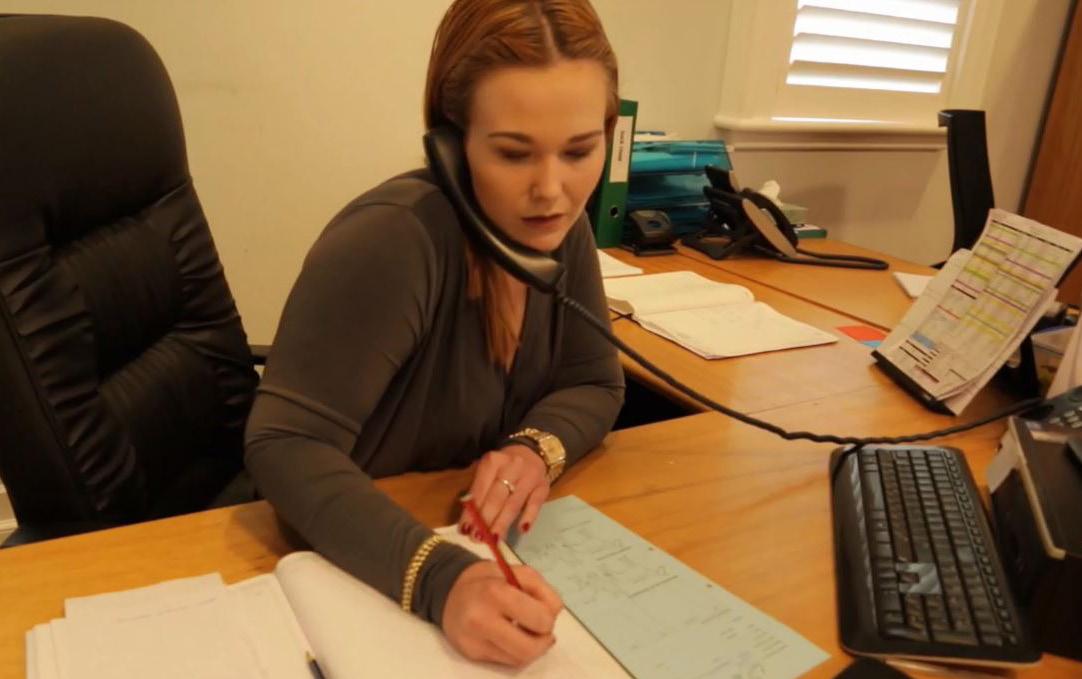
Work Health & Safety Officer
Working alongside the Human Resources and Insurance teams, the role of the Work Health & Safety Officer can often be incorporated with other roles like Assistant Stud Manager or Office Manager. A Safety Officer facilitates compliance with work health and safety (WH&S) guidelines. They provide advice on measures to minimise hazards or unhealthy situations and will also be on a constant lookout for violations. Work will be largely focused on incident prevention so you need to be conscientious and farsighted. The ideal candidate will also be detail-oriented and ready to act in emergencies. The goal is to establish a safe workplace according to legal standards and foster a culture of attention to health and safety for all employees and visitors.
Daily tasks may include:
• Support the development of WH&S policies and programs.
• Advise and instruct on various safety-related topics (risk levels, use of machinery, chemicals etc.).
• Conduct regular risk assessments and enforce preventative measures.
• Initiate and organise WH&S training of employees and executives.
• Inspect premises and the work of personnel to identify issues or non-conformity (e.g. not using protective equipment).
• Oversee installations, maintenance, disposal of substances etc.
• Stop unsafe acts or processes that seem dangerous or unhealthy.
Executive Assistant
• Record and investigate incidents to determine causes and handle worker’s compensation claims.
• Prepare reports on occurrences and provide statistical information to upper management.
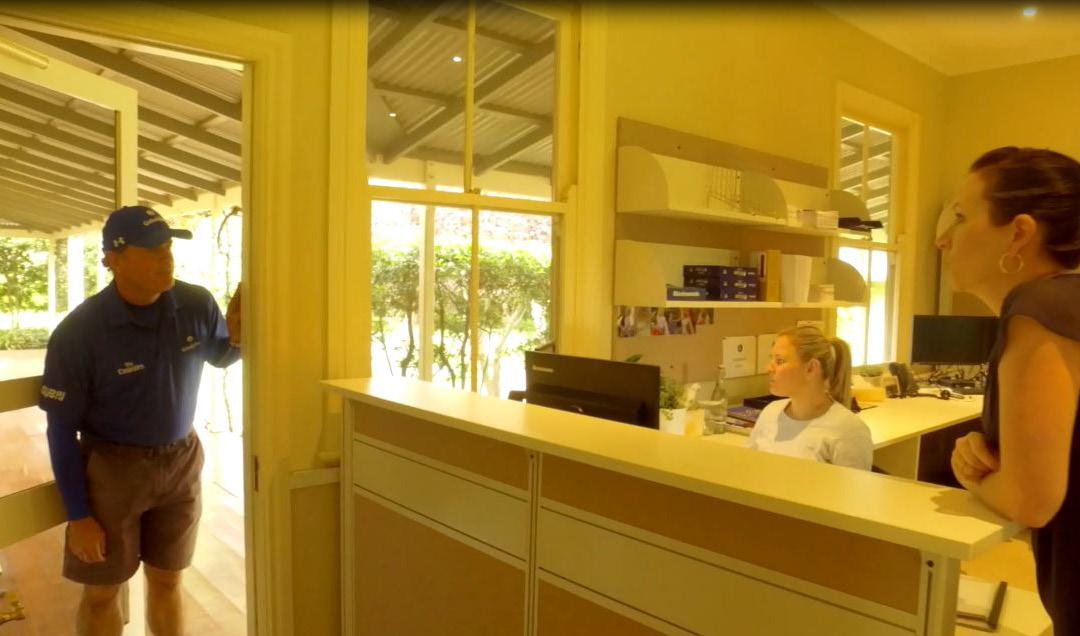
An Executive Assistant supports high-ranking officials in the company by organising and maintaining the executive’s schedule and assisting them by performing a variety of administrative tasks. Executive Assistants must be professionals with great time-management and multitasking abilities. It is with their diligence and competence in their work that executives can focus on their managerial responsibilities without worrying for other tasks. The goal is to contribute to the efficiency of the overall business by ensuring all assigned administrative duties are carried out in a timely and efficient manner.
Daily tasks may include:
• Maintain executive’s agenda and assist in planning appointments, board meetings, conferences etc.
• Attend meetings and keep minutes.
• Receive and screen phone calls and redirect them when appropriate.
• Handle and prioritize all outgoing or incoming correspondence (e-mail, letters, packages etc.).
• Make travel arrangements for executives.
• Handle confidential documents ensuring they remain secure.
• Prepare invoices or financial statements and provide assistance in bookkeeping.
• Monitor office supplies and negotiate terms with suppliers to ensure the most cost-effective orders.
• Maintain electronic and paper records ensuring information is organized and easily accessible.
• Conduct research and prepare presentations or reports as assigned.

Management Accountant
The role of a Management Accountant is to assist senior management in making critical business decisions by analysing and presenting key financial data, overseeing accounting procedures and preparing forecasts, budgets and risk analysis. An excellent management accountant must have an exceptional mathematical mind combined with a strong business orientation. You must be able to assume responsibility of cost accounting tasks and be both a strategist and a decision maker. The goal is to contribute to the decision-making process of management that will ensure business growth and long-term success.
Daily tasks may include:
• Gather and analyse financial information for internal use.
• Support budgeting and funding.
• Assist the company in managing its investment portfolio.
• Assume responsibility of accounting procedures.
• Evaluate the company’s performance using key data.
• Make forecasts to assist business planning and decision-making.
• Conduct risk assessment and advise on ways to minimise financial risk.
• Advise on problems and suggest improvements.
• Supervise lower-level personnel.
IT Manager
To obtain a role in information technology, you will need to have the necessary qualifications. It’s not a general requirement that you have a horse background, but if you have a passion for technology the horse industry, like many other industries, is becoming more reliant on keeping up to date with the latest digital age.
Daily tasks may include:
• Website management and design.
• Digital media management.
• Internet & Digital security.
• Software design and updates.
• Working with inter office locations.

Race callers, journalists, photographers, film production agents, radio and television presenters all play a part in the promotion and latest information relating to our industry. Studs, sales companies and marketing teams rely heavily on current broadcasts of races, current events and statistics that the thoroughbred media produces. Even those that are passionate about the industry will follow media outlets to keep up to date with the latest in the industry.
Getting started in a thoroughbred media career takes passion, dedication, resourcefulness, determination and a creative mind. A career in media can be fast paced, exciting and take you all over the world.

Supporting Education and Training
The Hunter Thoroughbred Breeders Association and its members has a long history of working with and within the Hunter community to support education and training and provide long term rewarding jobs in our industry.
These are some of the examples of the training, support and recognition we provide.

Godolphin Kids: Godolphin Kids is an interactive site where you can learn about the exciting world of thoroughbred horses. Through this interactive site you can learn all about a horse’s anatomy, how they see and hear, what they eat and much more. www.godolphinkids.com.au or call +61 2 6543 9000 to book your school’s tour.

Equistart: The HTBA in partnership with TAFE NSW, State Training Services and Rural Skills offers a school based traineeship for Years 11 and 12 while students continue their studies for the HSC. This accredited traineeship provides practical training and on-the-job experience and is an excellent pathway for students interested in a thoroughbred breeding career. www.htba.com.au/careers
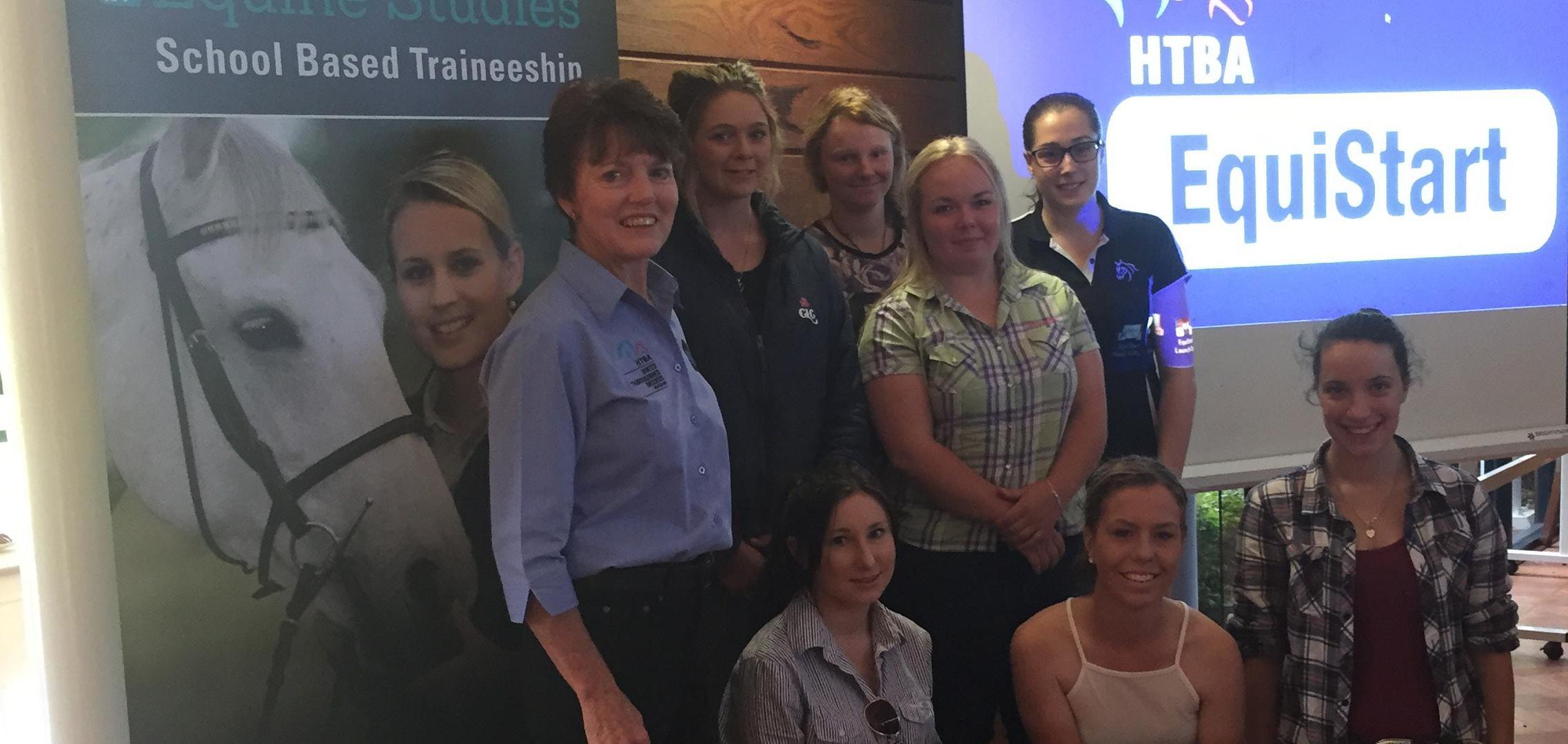

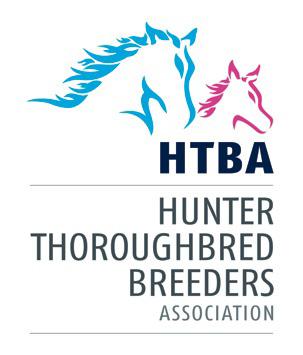
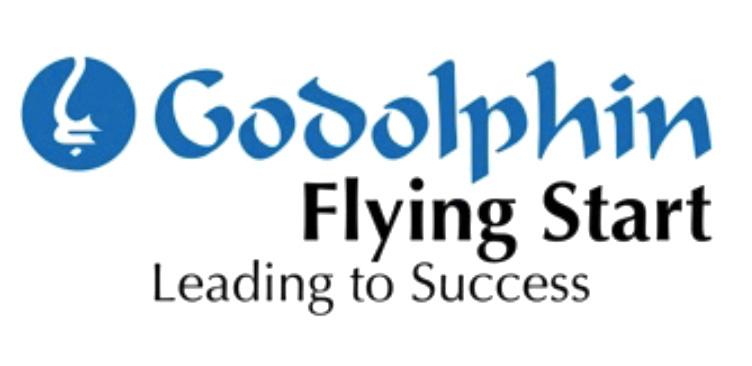
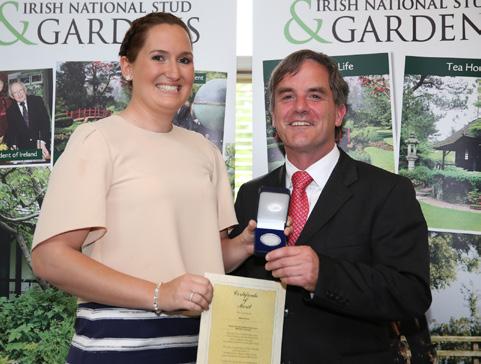

HTBA Annual Awards:The HTBA celebrates the achievements not just the champion horses, but the people, the lifeblood of our industry. Four awards are presented each year, with the winners being nominated by the HTBA for the national Godolphin Stud Staff and Stable Awards in the associated categories. View the HTBA Honor Role in our gallery www.htba.com.au
Godolphin Flying Start: Is a unique management and leadership training program that specialises in the international Thoroughbred industry. It recruits the most talented people worldwide and gives them an unmatched professional training and experience. Godolphin Flying Start graduates form an educated, dynamic global network who are leading change and driving development in the Breeding and Racing industry today.
www.godolphinflyingstart.com
HTBA & the Irish National Stud Course: The HTBA has a long and proud history of providing scholarships to the prestigious Irish National Stud Course - the pre-eminent equine training course in the world. The aim of the course is to educate young people for a career in breeding so that one day they can join the ranks of many graduates who have become future leaders or proud stud owners. www.htba.com.au/communitycareers.
Godolphin Stud and Stable Staff Awards: recognise and reward the hard work and dedication of stud and stable staff, acknowledging the huge contribution they make to the Australian Thoroughbred Industry. Through six award categories and an overall Thoroughbred Excellence Award, each award winner receives a trophy and a share of the $100,000 prize pool. www.studandstablestaffawards.com.au/
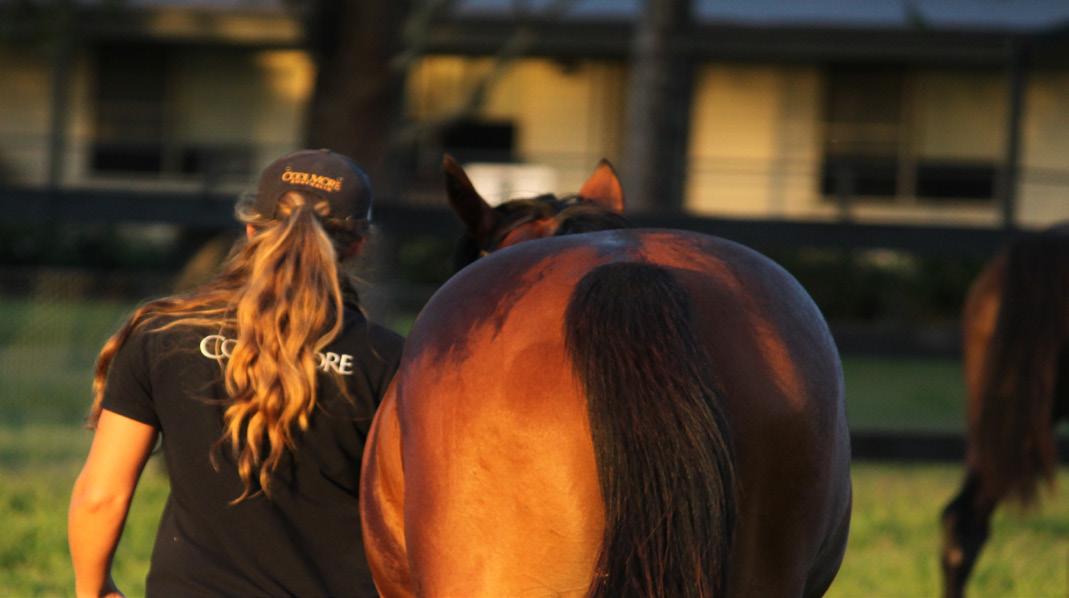
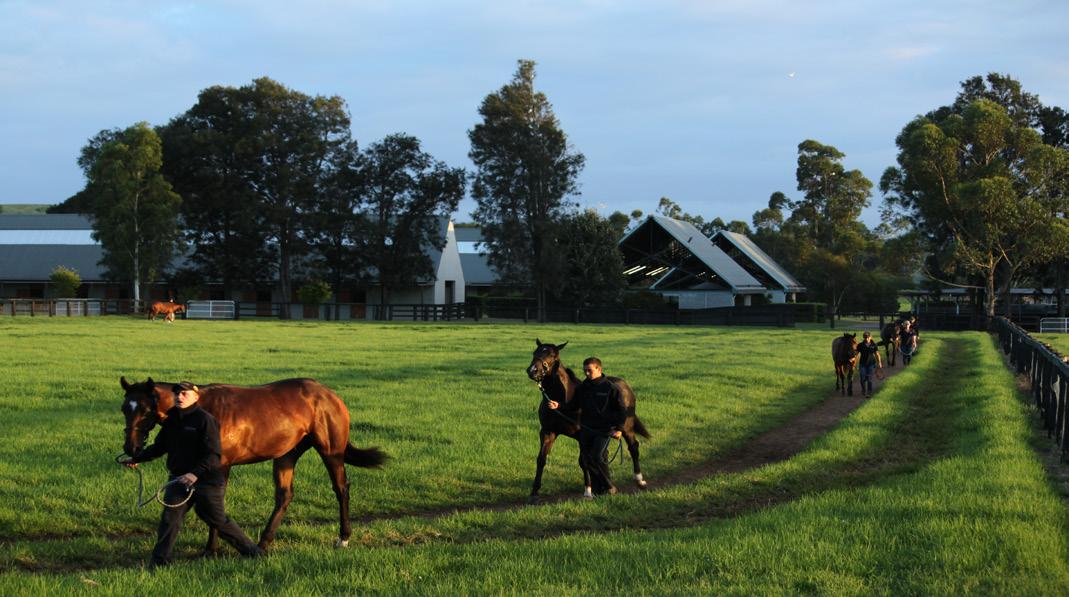
Living and Working on a Stud Farm
In the Hunter Valley, we are the largest agricultural industry and employer – employing some 5,000 people and contributing to a strong regional community and economy.
With over 200 studs, broodmare farms and support industries working closely together, there’s a real comradery about working in the thoroughbred industry. Whether you live on the farm or close by in town, friendships are made to last a lifetime.
Working on a stud farm can provide a real sense of community and family, celebrating milestones together, attending local community events, industry awards, seminars and racedays, playing for your studs team at the inter-farm sports match there’s a lot to be said about a rural lifestyle and its benefits.
Our industry aims to be welcoming and inclusive with the warm nature of the people, clients and owners making you feel like you’re part of one big family. Participants are very willing to share their knowledge, history and be informative mentors. The diverse nature of industry employers, clients and owners from around the world make the thoroughbred industry unique and dynamic.

Getting Started
It is important to understand that these roles are not exclusive or exhaustive. Entry into our workforce can be made easy. In the Hunter Valley we are lucky enough to have initiatives such as School Based and Full Time Traineeships. With the help of the Hunter Thoroughbred Breeders Association we can assist to provide experience during your training.
The HTBA hosts stud tour information sessions which are held throughout each year. Alternatively you can simply contact us.
As many stud workers will tell you, if you’re really keen to get started, show initiative and enthusiasm when seeking work in the thoroughbred breeding industry the studs are keen to hear from you.
Many of the stud roles allow you to learn as you go. Whilst on smaller studs you may have a combination of roles and on larger studs you may have more specialised jobs.
Follow us on twitter @HunterBred and Facebook/HunterThoroughbredBreeders.




Our stud farm members are always on the lookout for fresh new faces that are keen to work in the broad range of careers in the industry. Take a look online www.htba.com.au/careers


We look forward to helping you get started with your career and following your journey.

The Hunter Valley - Australia’s Thoroughbred
Thoroughbred Breeding Capital

For nearly 200 years the Hunter Valley has been home to world-class thoroughbred studs, broodmare farms, veterinarians, saddlers, farriers, equine transport companies, feed producers and many other equine support industries and thousands of dedicated people with a love of and passion for horse husbandry.
The Hunter Valley’s multi-billion-dollar thoroughbred breeding industry is a world renowned and economically significant agricultural industry. It is 1 of 3 Centres of Thoroughbred Breeding Excellence in the world.
The industry contributes $5b every year to Australia’s national economy and supports over 230,000 jobs across Australia.
In NSW, it contributes over $2.6 billion to the state economy and supports over 50,000 jobs.
1
Australia’s largest thoroughbred producer, supplier and exporter
1 in 2
Birthplace of 1 in 2 thoroughbreds born in Australia
In the Hunter Valley, we are the largest agricultural industry and employer – employing some 5,000 people and contributing to a strong regional community and economy.
With over 200 studs and broodmare farms and a sophisticated network of equine support industries, including the Scone Equine Veterinary Hospital (a centre of veterinary research excellence in its own right) – we are a recognised Equine Critical Industry Cluster.
We thank the many studs, industry participants and contributors for their support in the making of this educational booklet and for their continuous support that strengthens, unites, protects and preserves our industry for future generations.
1 of 3 Centres of Thoroughbred Breeding Excellence in the World
1
Unique environment, history and heritage
